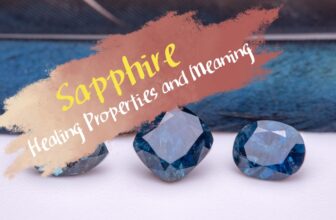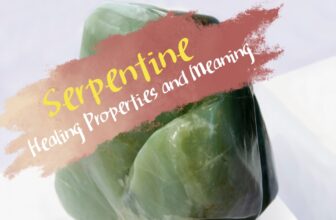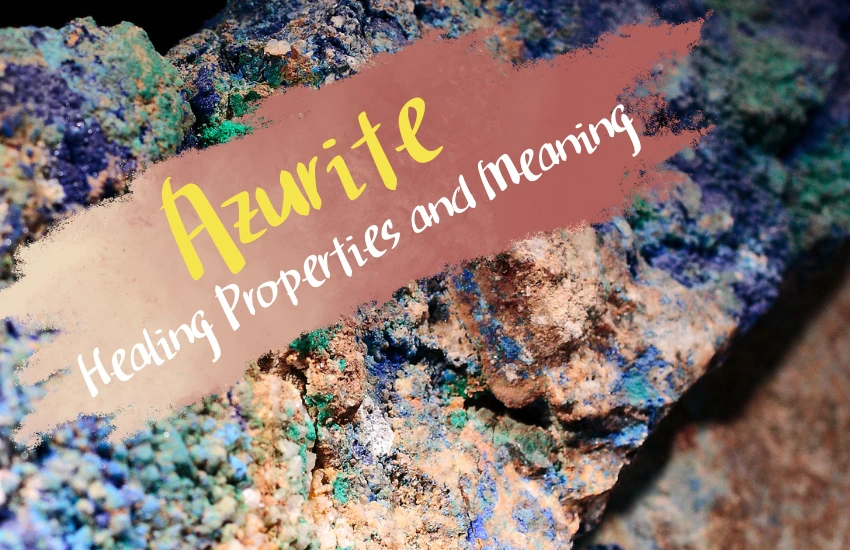
Table of Contents
Azurite is a mineral that has captured the imagination of many for centuries. Known for its deep, rich blue color, azurite has been used as a decorative stone and an artist’s pigment for millennia. But beyond its striking aesthetic, azurite also holds a unique place in the world of minerals, with a history and significance that is both fascinating and intriguing.
In this article, we’ll take a closer look at the properties and uses of azurite, as well as explore its cultural and historical significance. Whether you’re a mineral enthusiast, an artist, or simply someone who appreciates the beauty of natural stones, you won’t want to miss this in-depth look at one of the most striking and captivating minerals on earth: Azurite.
What is Azurite?
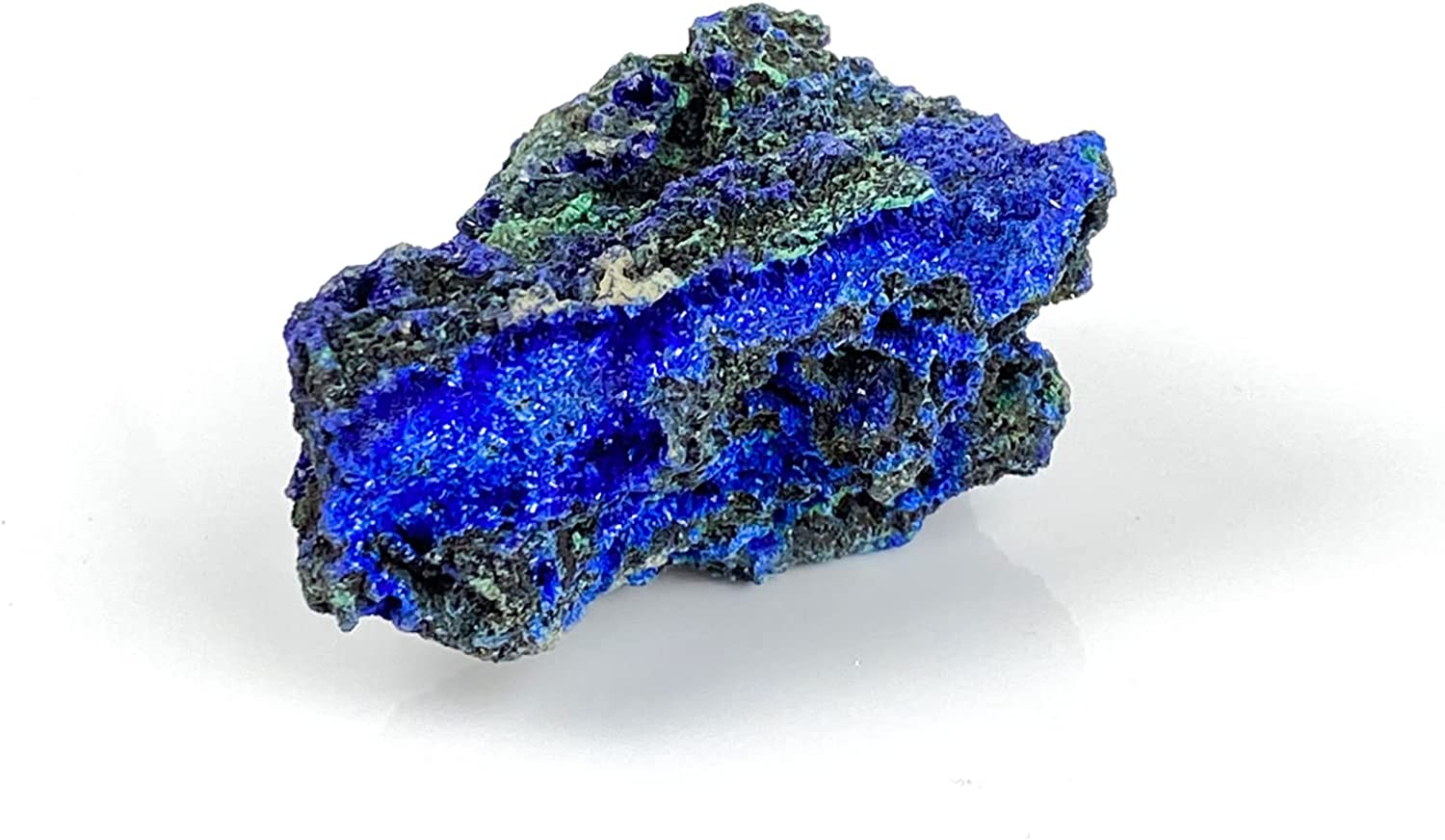
Azurite is a mineral that typically forms in copper ore deposits and occurs as masses, nodules, and crusts. It’s known for its deep blue color and often appears in combination with another mineral, malachite, which is green. Azurite is a basic copper carbonate, which means it contains copper, carbon, and oxygen, and has the chemical formula Cu3(CO3)2(OH)2.
It’s often used as an ore of copper and as a decorative stone. It’s been used in jewelry and as an artist’s pigment. Azurite is a soft mineral and is relatively easy to cut and shape. It’s also fragile and sensitive to acids and sunlight.
Azurite is not considered a hard stone as it has a Mohs hardness of 3.5 to 4, which means it can be easily scratched by a knife or other common materials. For comparison, a diamond, the hardest mineral, has a Mohs hardness of 10. This makes azurite a relatively soft and brittle mineral, which can be easily chipped or broken if not handled with care. It’s also relatively sensitive to sunlight and acids.
Do You Need Azurite?
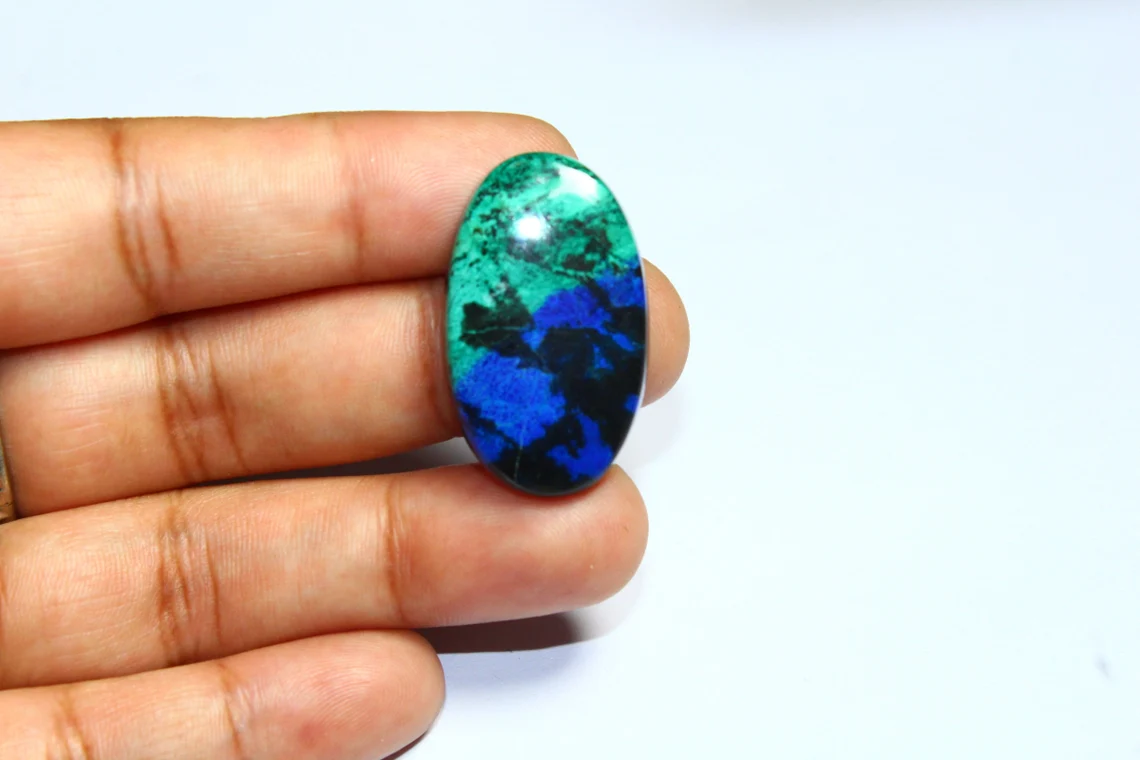
Some specific types of individuals who may benefit from having azurite in their crystal collection include:
- People who are working on personal growth and self-discovery: Azurite is said to enhance spiritual growth and development by opening the third eye chakra and helping to access higher states of consciousness.
- Individuals who struggle with emotional issues: Azurite is believed to help with emotional healing by bringing peace, calming the mind, and helping to clear negative emotions.
- People who are into meditation and spiritual practices: Azurite is believed to help in spiritual practices and meditation by opening the third eye chakra and helping to access higher states of consciousness.
- Individuals who are into crystal healing: Azurite is said to have properties that can help with healing and balance of the mind, body and spirit.
Azurite Healing Properties
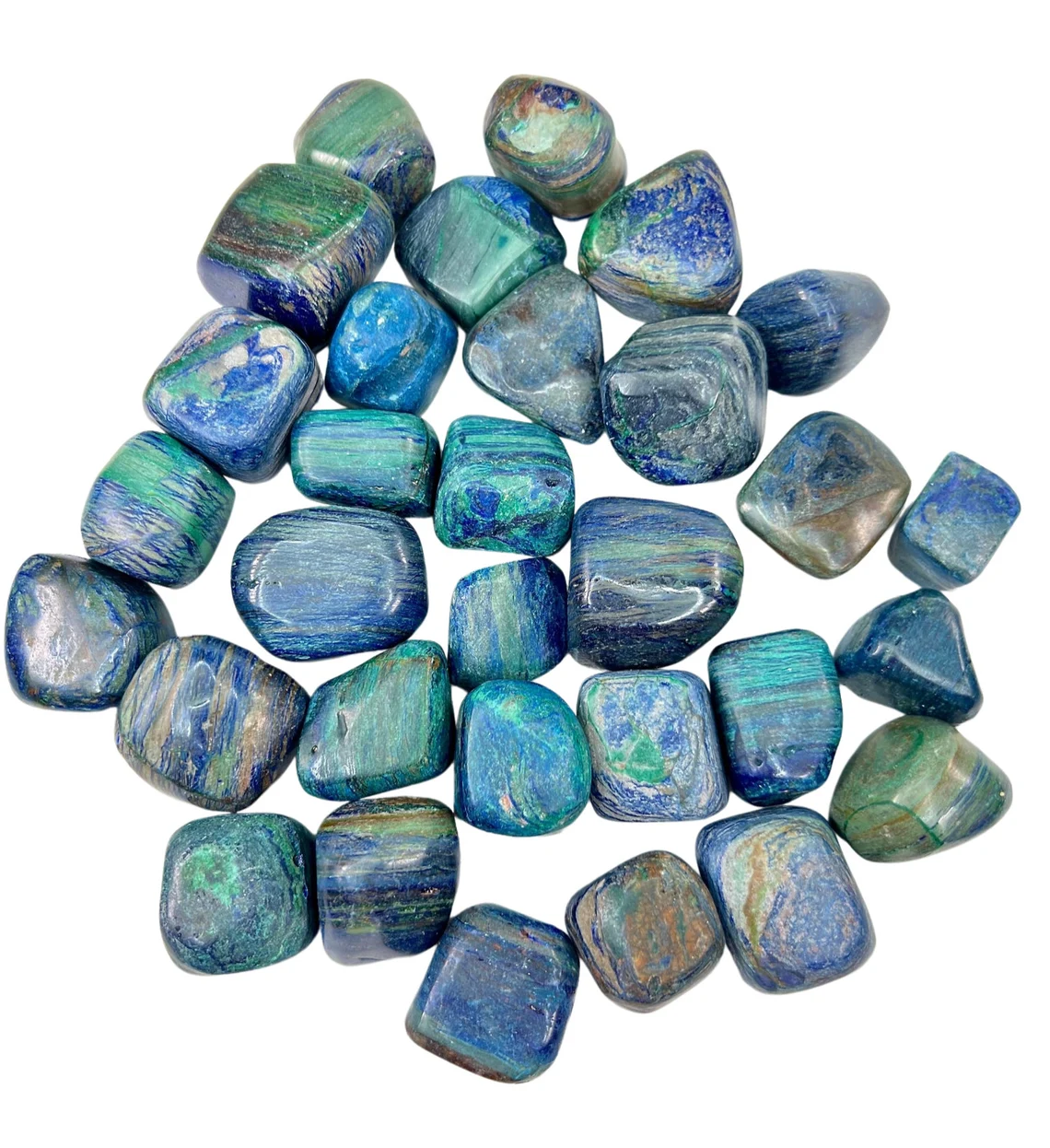
Azurite is a notorious healing stone. It can treat physical ailments while providing relief to the mental, emotional, and spiritual planes. However, it’s also a great accompaniment for chakra and Reiki work.
Azurite Healing Properties: Physical
Azurite is believed to have various physical healing properties, although these claims have not been scientifically proven. Some of the physical healing properties attributed to azurite include:
- Supporting the immune system: Azurite can help boost the immune system and help the body fight off infections and illnesses.
- Relieving pain: Azurite is believed to have pain-relieving properties and is said to be helpful for individuals suffering from headaches and other types of pain.
- Supporting the nervous system: Azurite is said to help support the nervous system and to help reduce anxiety, stress and tension.
- Supporting the respiratory system: Azurite is said to help support the respiratory system and to help alleviate symptoms of respiratory conditions such as asthma and bronchitis.
- Supporting the digestive system: Azurite can also help support the digestive system and to help alleviate symptoms of digestive conditions such as indigestion and stomach ulcers.
Azurite Healing Properties: Mental
Azurite is an energy regulator, and it can, therefore, promote and enable creativity while eliminating indecisiveness. It can instil self-confidence, providing a sense of invincibility, when necessary, while promoting awareness, precision and global thought.
This is what makes azurite excellent for meditation. The relaxation it provides comes from its ability to remove blockages, which eases a person’s entry into trance-like states. This means a person can travel deep within to attain total bliss while integrating a plethora of visuals and images to enrich the journey.
The effects of this sparkly gemstone can also mitigate worries and troubles sitting at the back of the mind. This is ideal when we need to steady ourselves in work, creating art or other pursuits requiring focus. Simply holding the stone can help remove burdensome thoughts.
Azurite Healing Properties: Emotional
Azurite is said to have emotional healing properties that can help to release negative emotions and thoughts, such as fear and stress. It’s believed to promote inner peace and tranquillity and to help with the release of old patterns and behaviours that no longer serve the individual.
Additionally, Azurite is said to enhance intuition and psychic abilities and to help with communication with the higher self and with spirit guides. It’s also said to help with emotional balance and with developing a clear understanding of one’s emotions.
Azurite Healing Properties: Spiritual
Known as the “stone of heaven,” Azurite allows one to connect with their highest self, which manifests deeper development of psychic capabilities. This, in turn, produces insight into all areas of a person’s life. Azurite also assists in recognizing intuitive information in relation to how it links with the physical world.
Due to its energetic regulation duties, Azurite offers a certain kind of precision. This means it lets in only what energies are necessary for any person or situation. It provides for a stabilized environment while preventing spurious overflows.
Azurite Healing Properties: Chakra & Reiki Work
Because azurite connects directly to the third eye, it’s excellent for the precise verbalization of psychic experiences. It’s also good for the heart and sacral chakras, promoting love. It can mellow the intellect with love and a desire to bestow good unto others.
So, it’s ideal for removing energy blockages in any chakra while improving energy flow and overall alignment.
Additionally, azurite is perfect as a pendulum in diagnosis for Reiki. The stone’s energy permeates the target user, pointing to areas that require healing or release due to blockages.
Symbolism of Azurite
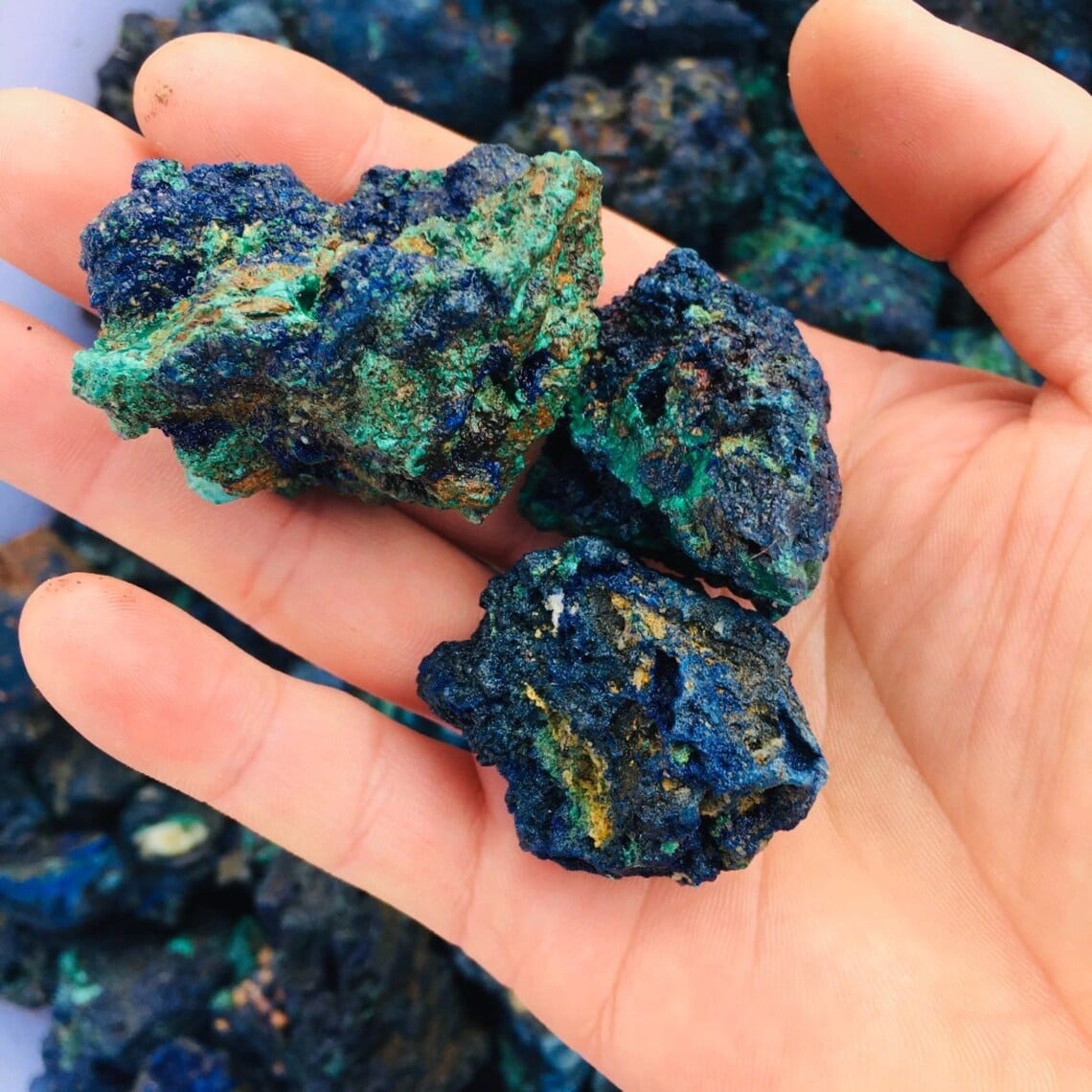
Azurite is a mineral that is often used in jewelry and as a decorative stone. It’s known for its deep blue color, and is often used as a symbol of wisdom, truth, and spiritual insight.
The blue color of azurite is said to represent the vastness of the sky and the limitless nature of the universe, which can inspire feelings of peace and tranquillity.
Azurite is also associated with wisdom, truth, spiritual insight, intuition, peace, and emotional balance.
How to Use Azurite
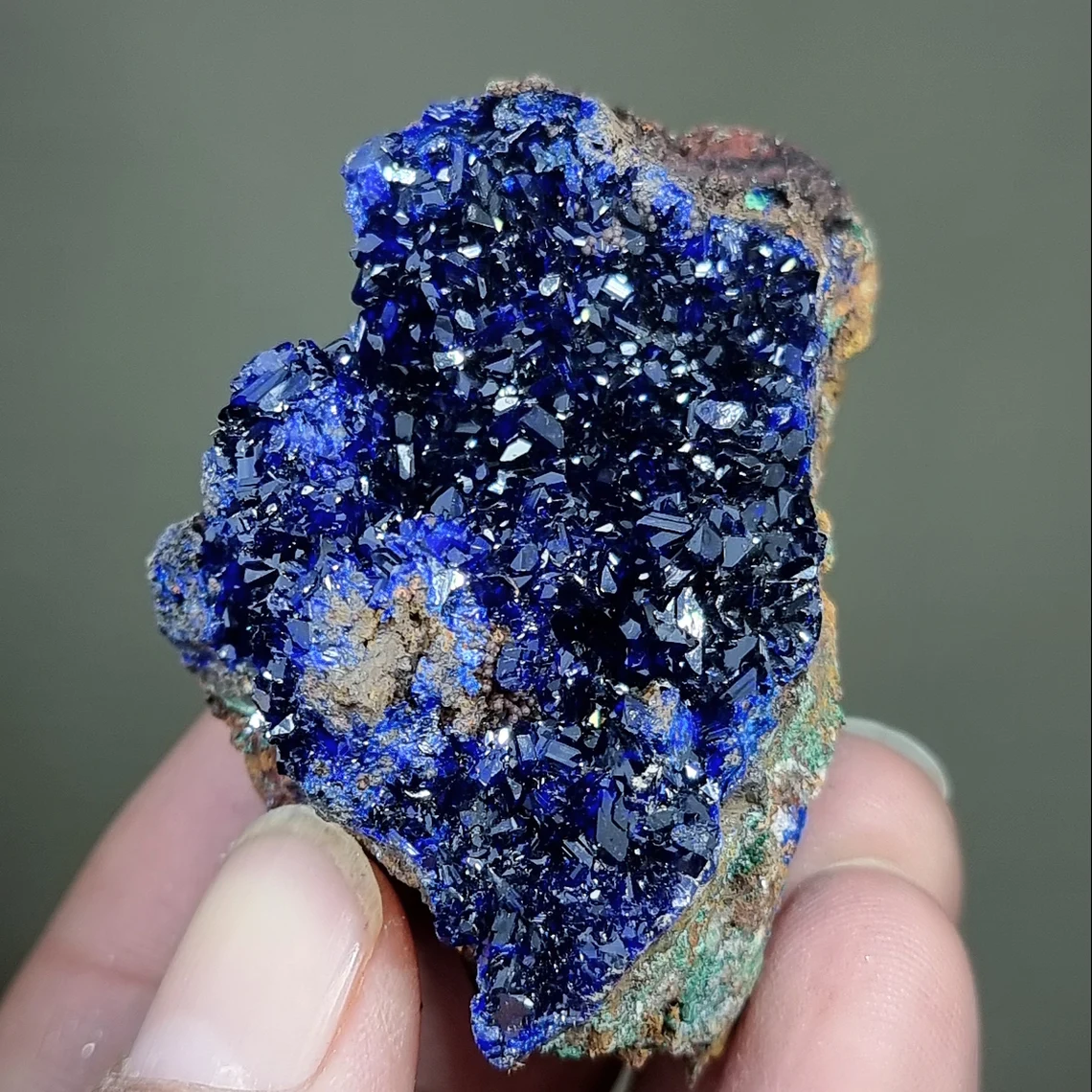
Due to its softness and fragility, Azurite is not ideal for jewelry even though it’s popularly used in jewelry designs. It’s also used for decorative purposes, and as an artist’s pigment.
Azurite in Jewelry
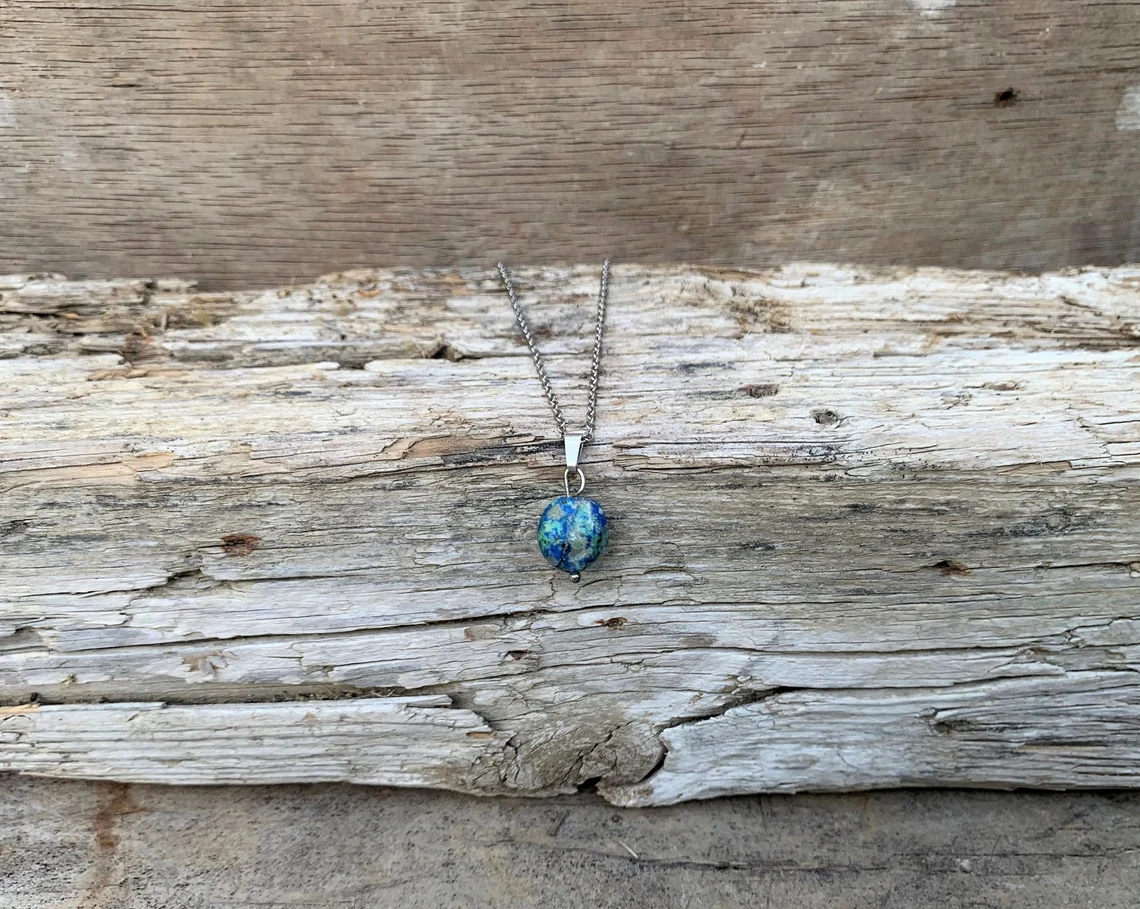
Azurite is a popular gemstone used in jewelry making due to its deep blue color and unique crystal formations. It’s often used in pendants, earrings, rings, and bracelets. Azurite is often combined with other stones like Malachite, Amethyst, Clear Quartz, Kyanite, and Citrine to create beautiful and unique jewelry pieces.
Azurite is also used as a cabochon, which is a smooth and polished gemstone that’s used in rings and pendants. However, it’s a soft mineral and can be scratched easily, so it’s best to handle it with care, and it’s not recommended for everyday wear. It’s best to store Azurite jewelry in a place where it will not be exposed to direct sunlight or heat sources.
Azurite as a Decorative Ornament
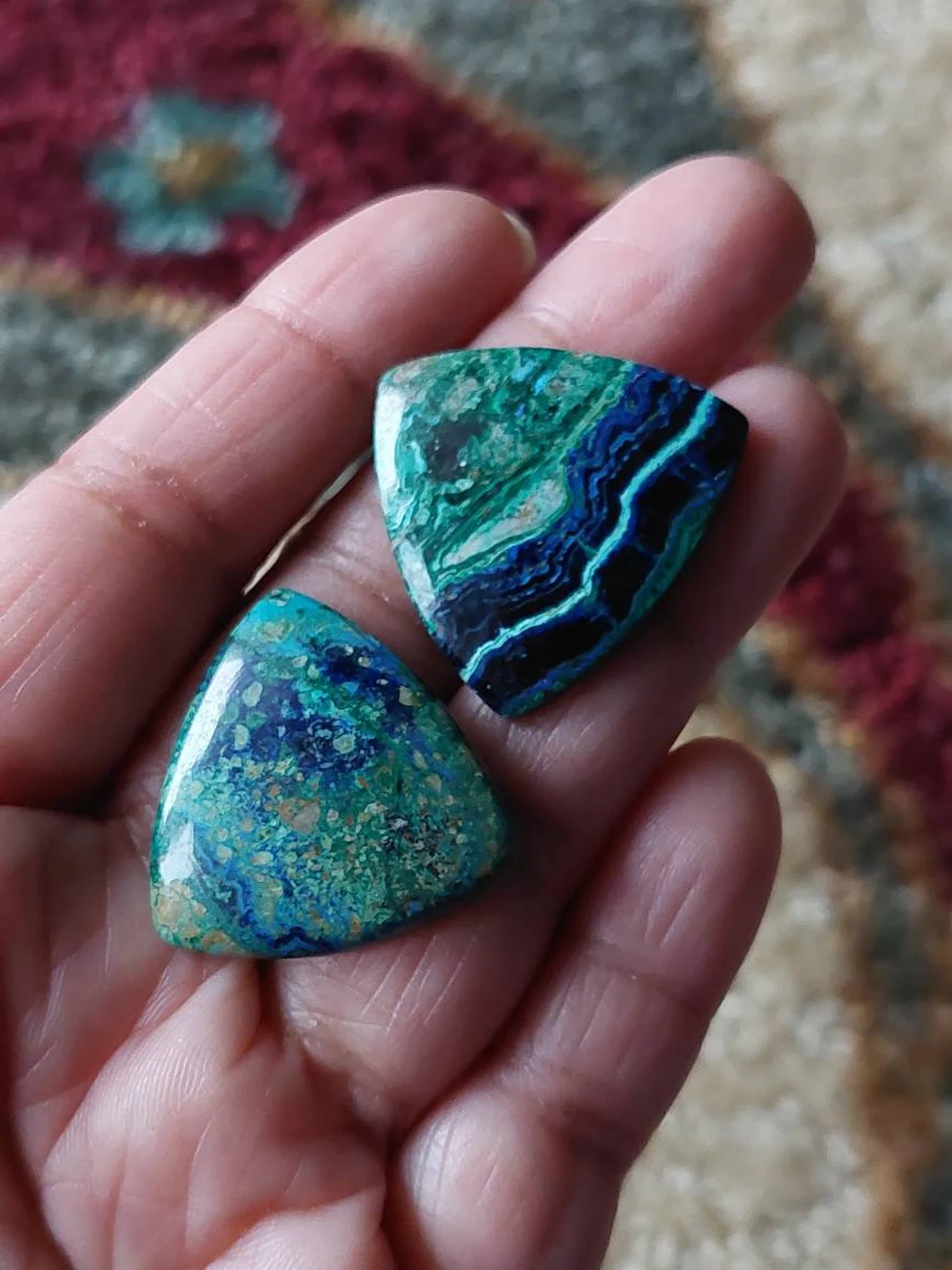
The deep blue color and unique crystal formations of Azurite make it a popular choice for decorating homes and offices. Azurite can be used in a variety of decorative items such as sculptures, carvings, and figurines. This stone can also be used to make decorative objects like vases, bowls and bookends.
Azurite can also be used in lapidary work, where it’s cut, polished and used to make beads and other small decorative items. It’s also used as a focal point in rock gardens and landscaping.
Azurite for Crafts
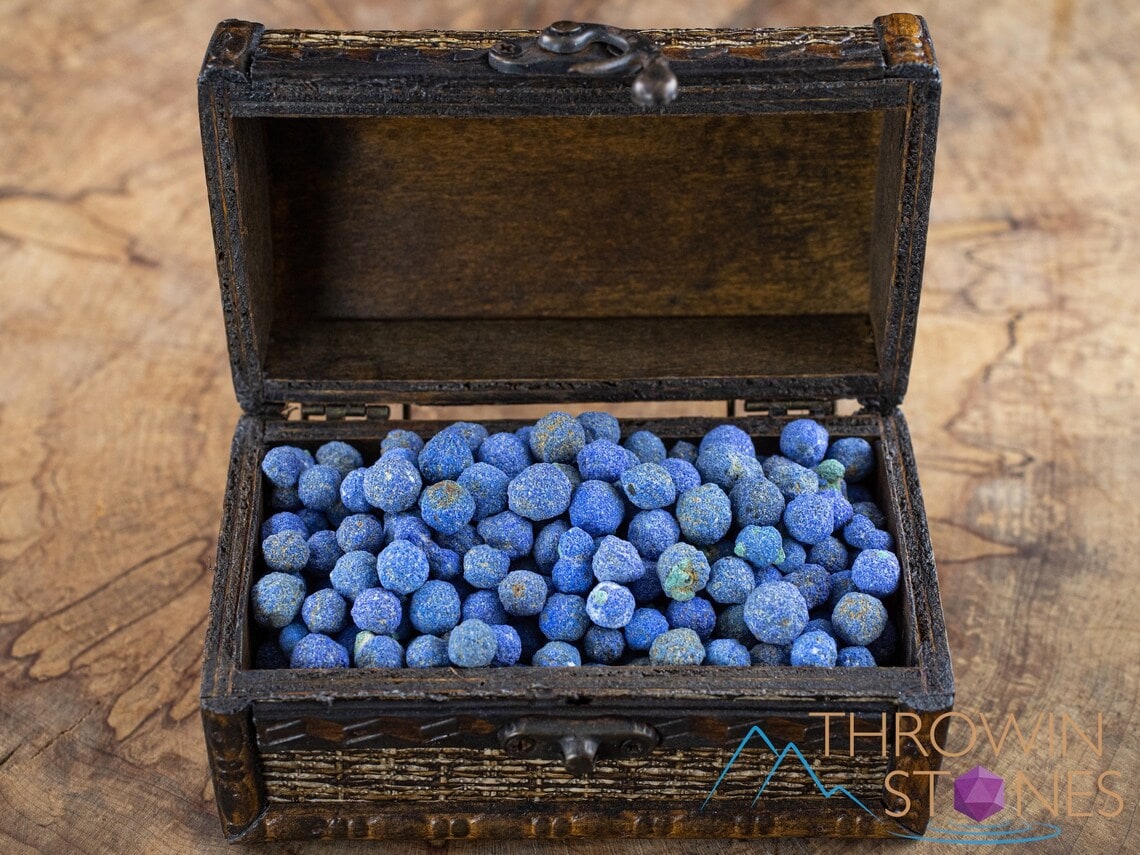
Azurite is a versatile mineral that can be used in a variety of crafts. Its deep blue color and unique crystal formations make it much sought-after for artists and crafters. Azurite can be used to make paint pigments, dyes, and inks. Its powder form can be used for calligraphy, watercolor, and oil painting.
Some crafters use Azurite to create mosaics and other decorative items. For example, they use it to create unique and beautiful home decor items such as coasters, bookmarks and other items.
Azurite in Crystal Therapy
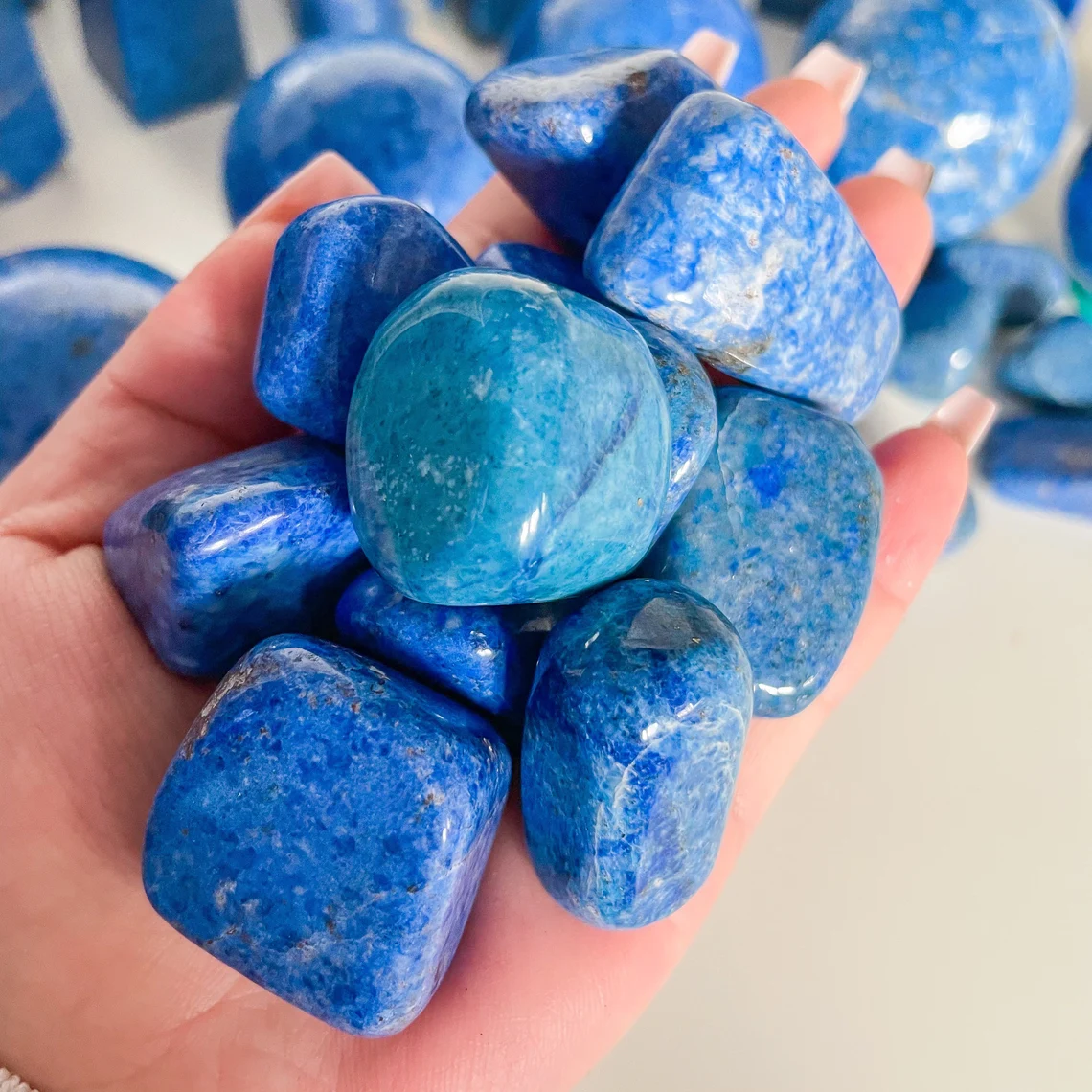
Azurite is often used in crystal therapy because of its deep blue color and its properties as a spiritual stone. In crystal therapy, it’s believed that azurite can enhance intuition, psychic abilities, and spiritual awareness. It’s also said to be a powerful stone for emotional healing and for releasing negative emotions.
To use azurite in crystal therapy, you can place a piece of the mineral on or near the body during meditation or while sleeping, or you can carry it with you in a pocket or on a necklace. You can also place it in a room or workspace to promote mental clarity and focus. Some people also use azurite in elixirs, by placing a piece of the mineral in water and allowing it to sit overnight before drinking it in the morning.
How to Clean and Care for Azurite
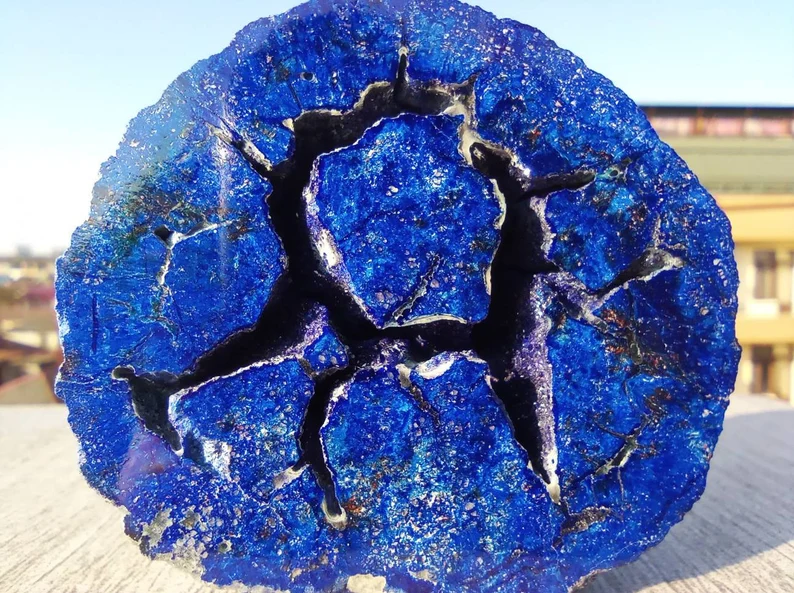
There are several ways to clean and cleanse azurite:
- Soaking: You can soak your azurite in a bowl of water mixed with sea salt or Himalayan salt for at least 30 minutes to a few hours. This will help to remove any negative energy and impurities from the stone.
- Smudging: Using a sage smudge stick, you can cleanse your azurite by wafting the smoke over the stone while focusing on the intention of removing any negative energy.
- Recharging: Placing your azurite in direct sunlight or moonlight for a few hours can help to recharge the stone and restore its energy.
- Sound Healing: You can also cleanse azurite by using sound healing methods, such as singing bowls or tuning forks. The energy vibrations from the sound can help to clear any negative energy from the stone.
- Cleaning: You can clean your azurite by gently wiping it with a damp cloth or using a soft brush. Avoid using harsh chemicals or abrasives, as these can damage the stone.
It’s important to note that azurite is a soft mineral and can be scratched easily so it’s best to handle it with care. It’s also important to note that Azurite can discolor over time when exposed to light and heat, so it’s best to store it in a place where it will not be exposed to direct sunlight or heat sources.
It’s also important to note that cleansing and recharging should be done regularly, especially if the stone is used frequently or if it’s been exposed to negative energy.
What Gemstones Pair Well with Azurite
There are several gemstones that are said to pair well with azurite:
Malachite
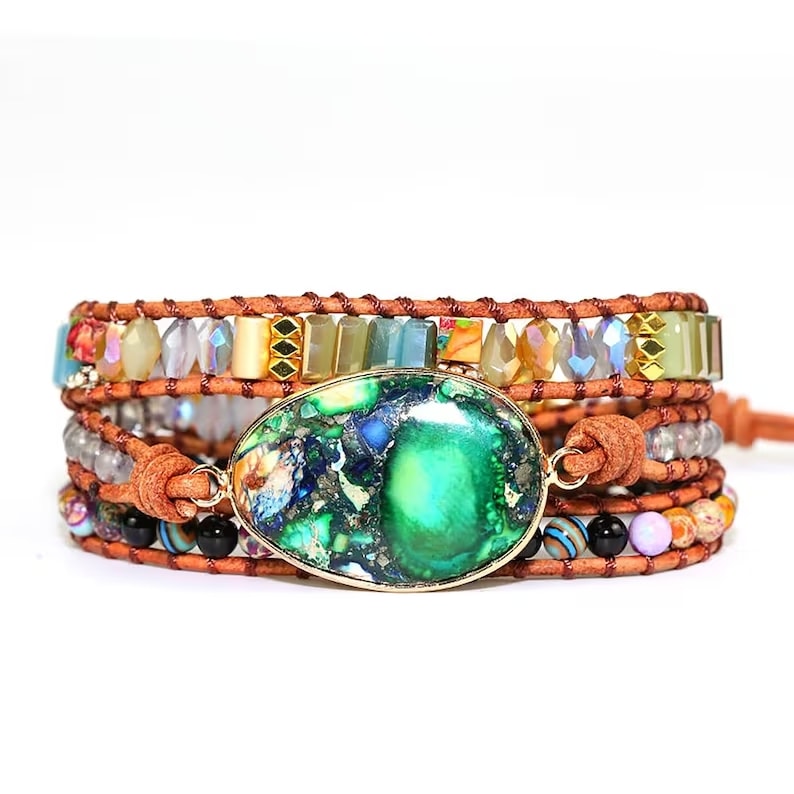
Malachite and Azurite are often combined together as they’re copper minerals and have similar properties. When combined, they create a powerful synergy, which can enhance intuition, psychic abilities, emotional healing and inner peace. They’re also visually pleasing when used together. However, it’s best to be careful as copper content in both stones can cause skin irritation or allergies.
Amethyst
Amethyst and azurite can complement each other well when combined. Amethyst promotes spiritual awareness and emotional balance, while azurite enhances intuition, psychic abilities, and spiritual awareness.
Together they can provide a sense of inner peace and tranquility, and can enhance spiritual and emotional healing. They also create a beautiful contrast of colors when used together.
Clear Quartz
Clear Quartz and azurite can work well together. Clear Quartz amplifies energy and enhances the properties of other stones. Azurite enhances intuition, psychic abilities, and spiritual awareness.
When combined, they can enhance spiritual and emotional healing and can be a powerful tool for meditation and connecting with the higher self and spirit guides.
Kyanite
Kyanite aligns the chakras, and promotes emotional balance and communication. Azurite enhances intuition, psychic abilities, and spiritual awareness. Together they can provide inner peace, and emotional balance and can enhance spiritual and emotional healing. The blue color of Kyanite also complements the deep blue color of Azurite.
Citrine
Citrine promotes abundance and emotional well-being, while azurite enhances intuition, psychic abilities, and spiritual awareness. Together these two stones can provide emotional balance, inner peace and can enhance spiritual and emotional healing. The yellow color of Citrine also adds a nice contrast to the deep blue color of Azurite.
It’s worth noting that the pairing of different stones depends on the individual and what they are looking to achieve with their practice, it’s always a good idea to experiment with different stones and see which one feels the most powerful and resonates with you.
Where is Azurite Found?
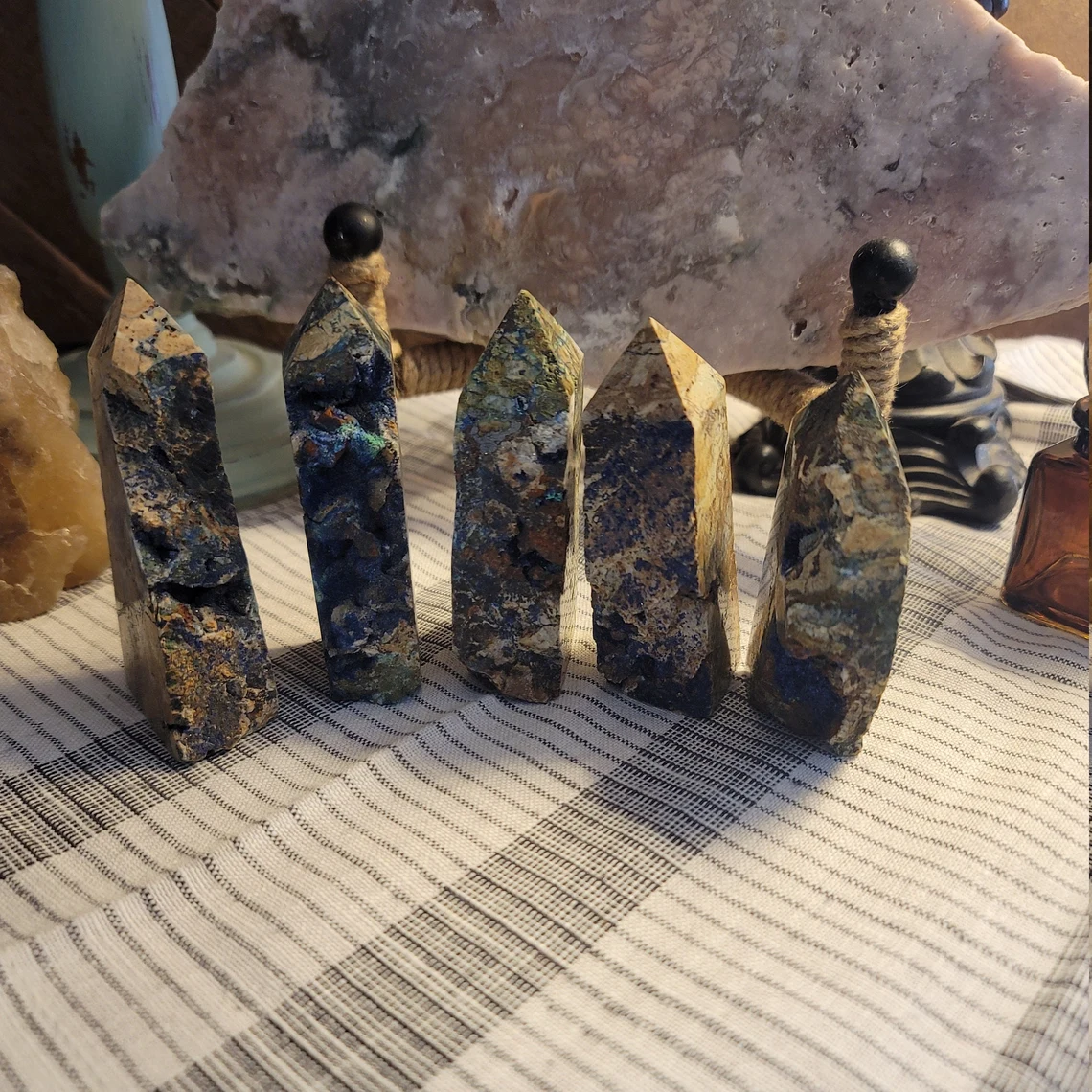
Azurite is a mineral that’s found in several locations around the world. Some notable locations where azurite is found include the United States, Russia, Chile, France, Mexico, China, Congo, Australia, and Namibia. In the United States, it’s found in Arizona, New Mexico, and Utah, while in Russia it can be found in the Ural Mountains
Azurite mines are found in the Atacama Desert in Chile and in France, in the Massif Central region. In Mexico, it’s found in the Mapimi area in Durango and the Milpillas mine in Sonora. Congo has mines in Copperbelt Province, Australia in the Broken Hill Mine in New South Wales and Namibia in the Tsumeb mine. The quality of the specimen can vary depending on the location, and some mines produce higher-quality specimens than others.
The Color of Azurite
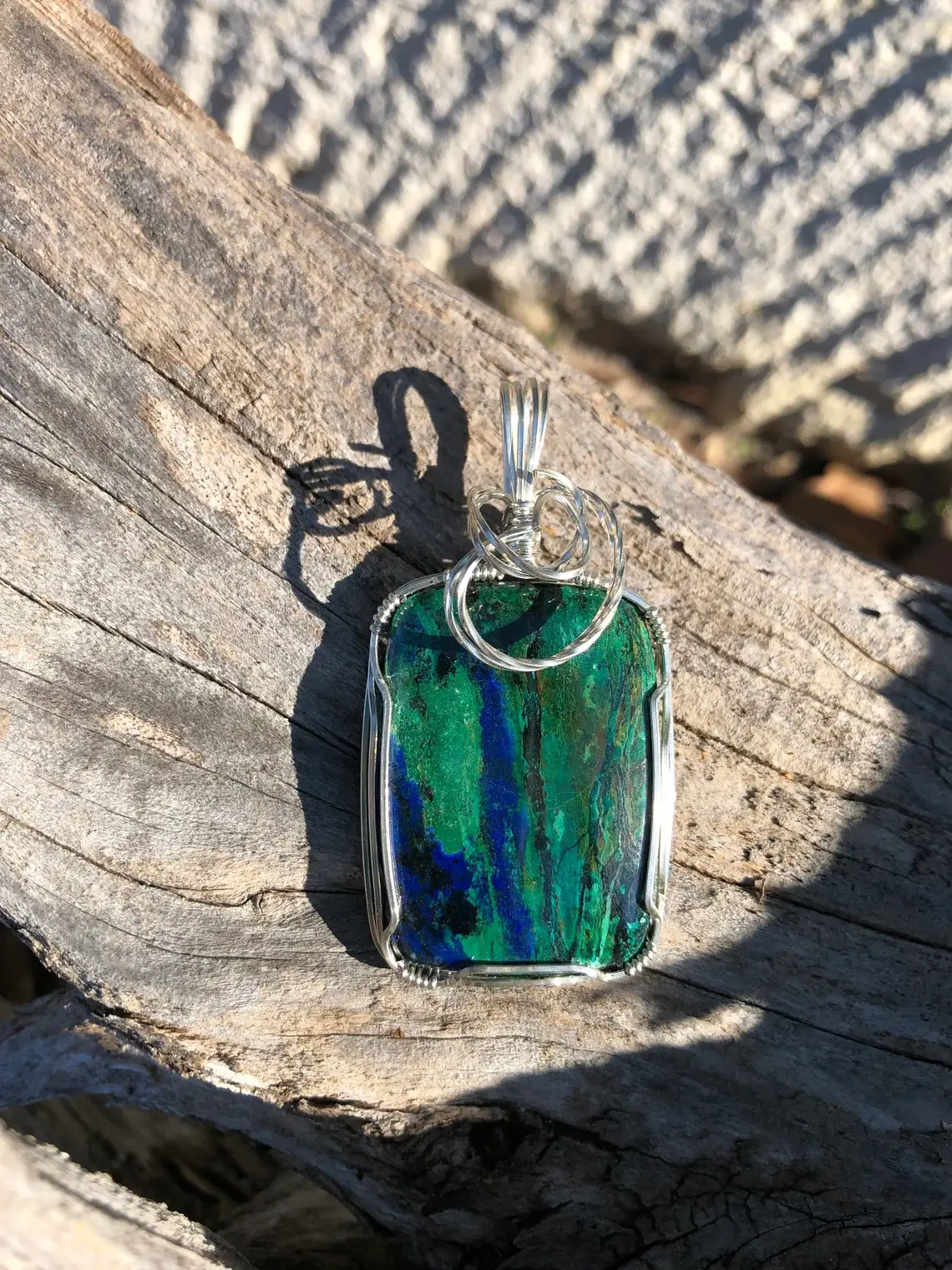
Azurite gets its deep blue color from the presence of copper ions (Cu++) in its chemical composition. The copper ions absorb specific wavelengths of light, giving the mineral its distinctive blue color. Azurite is a copper carbonate mineral, and its chemical formula is Cu3(CO3)2(OH)2.
The copper ions in the crystal structure of azurite are responsible for its color. The intensity of the blue color can vary depending on the amount of copper ions present in the specimen, as well as the size and distribution of the copper ions within the crystal structure.
History & Lore of Azurite
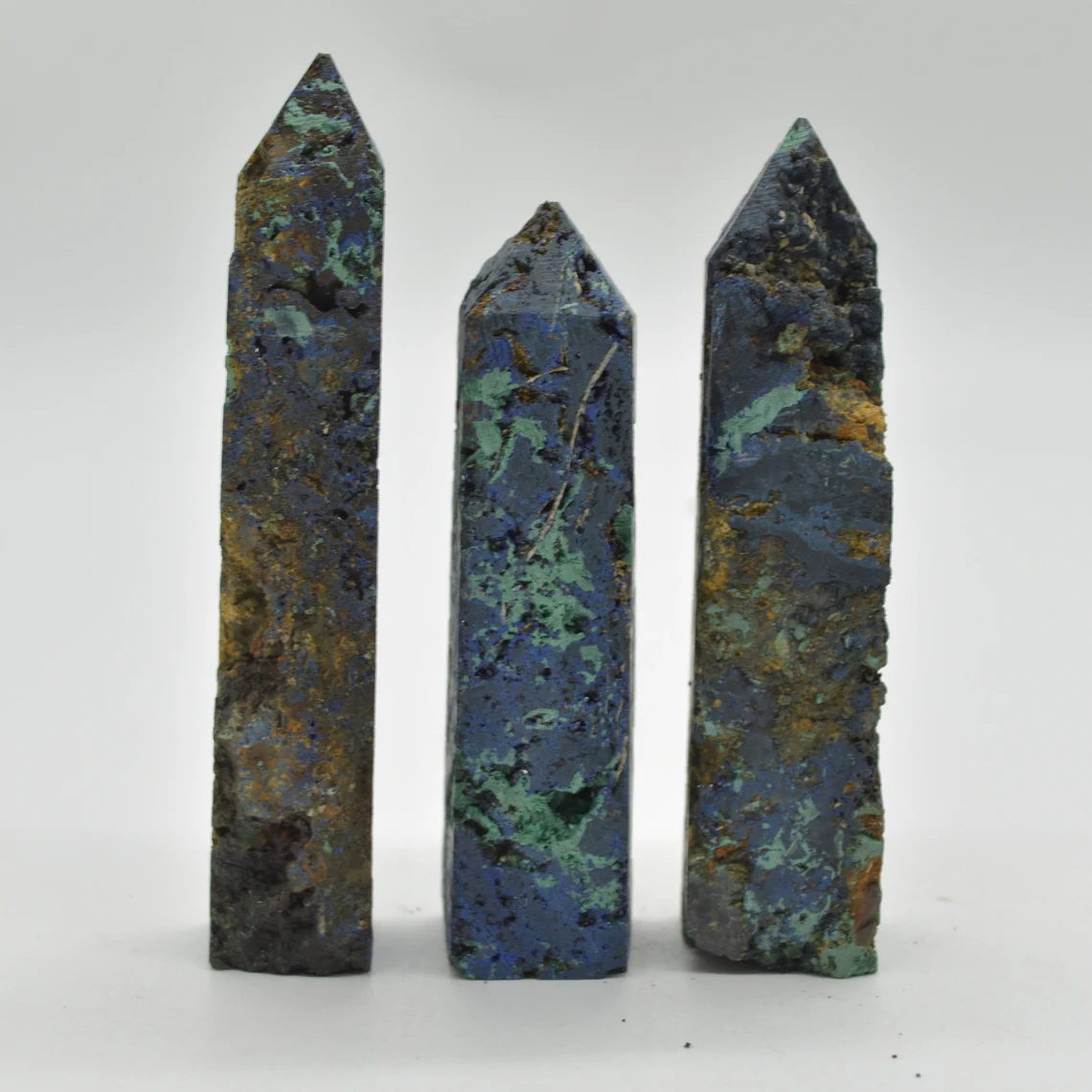
Azurite has a rich history dating back thousands of years. It was first used as a pigment for paint and dye by ancient Egyptians and was also used by the ancient Greeks and Romans for decorative and ornamental purposes. The ancient Egyptians also believed that azurite had healing properties and used it in their medicine. In the Middle Ages, azurite was ground into a powder and used as a pigment for illuminated manuscripts, frescoes and oil paintings.
Azurite has also been used in spiritual and metaphysical practices. In ancient times, it was believed to have magical powers and was used in divination and for protection. It was also used as a pigment for paint and was believed to have healing properties. In spiritual and metaphysical beliefs, azurite is said to be a powerful stone for stimulating the third eye and crown chakras, which can help with intuition, psychic abilities, and spiritual awareness.
Azurite was also used in the mining industry, as it is often found in copper mines, and it was used as an indicator of copper deposits.
In modern times, azurite is still used as a decorative stone, in jewelry, and as a specimen for collectors. Its deep blue color and unique crystal formations make it a popular choice among mineral enthusiasts.
Frequently Asked Questions about Azurite
Azurite is a copper-containing mineral, which can cause skin irritation or allergies for some people, it should be handled with care and washed hands after use. Avoid prolonged contact with the skin.
Azurite is a real gemstone, known for its deep blue color and often used in jewelry and as a decorative stone. It is also popular among mineral enthusiasts as a specimen and for collection.
Azurite can be placed in water for cleaning and energy charging, but prolonged exposure to water can cause discoloration and erosion. It is best to dry the stone thoroughly after cleaning and avoid submerging it in water for long periods of time.
Azurite is a suitable gemstone for jewelry, due to its deep blue color and unique crystal formations. However, it is a soft mineral and can be scratched easily, so it is best to handle it with care, and it is not recommended for everyday wear.
Azurite symbolizes wisdom, truth, spiritual insight, intuition, peace and emotional balance. It’s also associated with emotional healing and release of negative emotions.
Azurite is not an official birthstone. However, those born in September, October, and November can benefit from its effects.
Sagittarius and Libra are most often in association with Azurite.
Azurite and Lapis Lazuli are two different gemstones, Azurite is a deep blue mineral often used in jewelry and as a decorative stone, Lapis Lazuli is a blue metamorphic rock containing lazurite, calcite and pyrite, it’s also used in jewelry and decorative items.
Wrapping Up
Whether you choose to carry a piece of azurite with you, place it in your workspace, or use it in an elixir, incorporating this mineral into your daily routine may help to enhance your overall well-being. However, it’s important to remember that crystal therapy is not a substitute for professional medical treatment, and you should always consult your healthcare provider if you have any concerns.
Overall, azurite is a wonderful tool to add to your self-care arsenal, and its beauty and power are undeniable.






